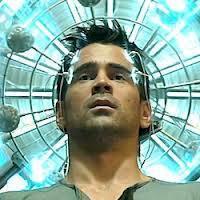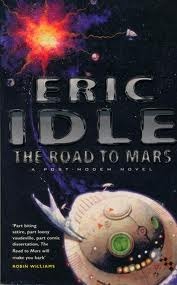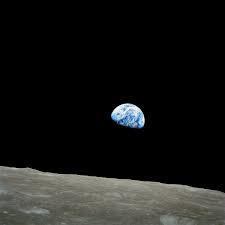Peter Cawdron's Blog, page 21
August 23, 2012
Total Recall
 Australia usually wins a buckle load of medals at the Olympics, but in London the Australian team failed to get more than half the haul of Beijing gold. The media were ropeable. Swimmer James Magnussen was a “failure,” with the team coming fourth in a “disaster,” when the first four placing were separated by less than two seconds! Magnussen goes on to win silver in the 100M freestyle, missing out on gold by 1/100 of a second and it seemed like the world had come to an end, if the media reports were to be believed.
Australia usually wins a buckle load of medals at the Olympics, but in London the Australian team failed to get more than half the haul of Beijing gold. The media were ropeable. Swimmer James Magnussen was a “failure,” with the team coming fourth in a “disaster,” when the first four placing were separated by less than two seconds! Magnussen goes on to win silver in the 100M freestyle, missing out on gold by 1/100 of a second and it seemed like the world had come to an end, if the media reports were to be believed.
The “failure” to win gold had at least one commentator who should know better calling for a “royal commission” to investigate the tragedy, questioning the team’s “work ethic.” In reality, just getting to compete in the finals at that level is an astounding achievement, to win a medal is outstanding, regardless of its chemical composition. Silver is not a consolation prize for the first loser, it is a recognition that the competition is so fierce placings can be separated by a fingernail.
And people wonder why I have no interest in the Olympics. It’s not the Olympics, its the hype that does my head in. Anyway, you’re probably wondering what all this has to do with the remake of Arnold Schwarzenegger’s classic Total Recall. It has everything to do with it, because both the Australia Olympic team and Total Recall have been unfairly savaged by armchair critics.
 Being a writer, I know a thing or two about unfair criticism. Some of the cheap shots I’ve been subjected to are so blatantly false they’re laughable. They’re electronic vandalism, graffiti I can’t paint over. So I feel for the Olympic athletes and the makers of Total Recall as consumers will make decisions based on these reviews, trusting them when, for whatever reason, they’re unduly biased against them.
Being a writer, I know a thing or two about unfair criticism. Some of the cheap shots I’ve been subjected to are so blatantly false they’re laughable. They’re electronic vandalism, graffiti I can’t paint over. So I feel for the Olympic athletes and the makers of Total Recall as consumers will make decisions based on these reviews, trusting them when, for whatever reason, they’re unduly biased against them.
Total Recall is savaged by movie reviewers, and unfairly so. OK, it’s not Gone with the Wind, but that’s not what I went to see. I wanted to watch an science fiction action/adventure and that’s exactly what I got, heart-stopping, adrenalin pumping action.
Total Recall isn’t perfect, but to call it “bloated” and “should have asked for… money back” and “lackluster” is disingenuous.
There’s a few minor plot holes, but nothing of any significance, certainly nothing on the scale of Prometheus. I doubt whether most people will even pick up on them.
Colin Farrell doesn’t have the presence of Arnold. But that’s a good thing, at least Farrell can act. As much as I love Arnie, he’s more of a special effects prop than an actor.
The omni-directional elevator scene is unnecessarily convoluted and would never work in real life, but, hey, it’s fiction. I can understand the pressure the writers/producers feel under to come up with something new and innovative. If they had have gone with something safe, they’d have been criticised for that as well. Damned if you do, damned if you don’t.
The movie follows all the classic tropes, with caricatures rather than characters and the obligatory car chase scene, but what action movie doesn’t?
There’s a few minor scientific points that are stretched for the sake of the story, but they’re well executed and fun to watch.
Somewhat predictably, the bad guys and robots can’t shoot straight, but audiences have been accepting that since spaghetti westerns
My only criticism would be the two women have essentially the same hair colour, making them hard to pick out in fight scenes. Blone/brunette would have worked better, but how minor is that? And steals the movie with her sultry mood.
 Comparing this remake to the original is a mistake. Yes, there’s obvious similarities in that the story line is essentially the same, but there’s plenty of variety and intrigue woven in as well. The cinematography is brilliant. Any comparison is going to fall short, simply because the original aspects of the story can’t be repeated and remain original. I can’t help but wonder if this was the first rendition of Philip K. Dick’s novel whether it would rate higher.
Comparing this remake to the original is a mistake. Yes, there’s obvious similarities in that the story line is essentially the same, but there’s plenty of variety and intrigue woven in as well. The cinematography is brilliant. Any comparison is going to fall short, simply because the original aspects of the story can’t be repeated and remain original. I can’t help but wonder if this was the first rendition of Philip K. Dick’s novel whether it would rate higher.
Both versions of Total Recall are great. The remake, though, is more gritty, deliberately reminiscent of Blade Runner, and unfolds on a grand scale. Even though you have a pretty good idea how the classic scenes are going to unfold, the script writers have pushed themselves to come up with subtle differences and a nice twist at the end that gets you to question everything you’ve just seen.
As action films go, I rate Total Recall as 9/10. Perhaps all those negative reviews lowered my expectations, leaving me pleasantly surprised.


August 18, 2012
The Road to Mars
 With NASA’s Curiosity rover landing on Mars, there’s been a lot of science on this blog, but not much fiction over the past month, and all this talk of Mars has had me thinking about some of the great novels that have been written about the angry red planet, like Kim Stanley Robinson’s Red Mars, Blue Mars, Green Mars, etc.
With NASA’s Curiosity rover landing on Mars, there’s been a lot of science on this blog, but not much fiction over the past month, and all this talk of Mars has had me thinking about some of the great novels that have been written about the angry red planet, like Kim Stanley Robinson’s Red Mars, Blue Mars, Green Mars, etc.
My all-time favourite book about the god of war’s humble abode is Eric Idle’s The Road to Mars, although this book is more about the journey than the destination.
Eric Idle is a surreal comedian, one of the founders of Monty Python, and The Road to Mars reads like a script from Red Dwarf. If you’re a Red Dwarf fan and you haven’t read The Road, you are in for a treat. I’d go so far as to say you should keep the following character comparisons in mind.
Road to Mars
Red Dwarf
Android Carlton
Android Kryton
Alex Muscroft
Dave Lister
Lewis Ashby
Arnold Judas Rimmer
Boo
The Cat
Katy Wallace
Kristine Kochanski
I don’t know if this was a conscious decision on Idle’s part, and I’m not the only one to draw these comparisons, but it in no way detracts from the comedy. If anything, it enhances it as you follow already well-established caricature characters through the story.
 The Road to Mars gets savaged in the Amazon reviews, and I’ve passed this book around to friends who have given it a rating of “Meh!” But I love it. I’ve read this book twice and am taking it with me to Melbourne this weekend to read on the plane.
The Road to Mars gets savaged in the Amazon reviews, and I’ve passed this book around to friends who have given it a rating of “Meh!” But I love it. I’ve read this book twice and am taking it with me to Melbourne this weekend to read on the plane.
Robin Williams noted The Road was “part biting satire, part loony vaudeville, part comic dissertation, The Road to Mars will make you bark.” Barking, as you learn on the road to Mars, is the evolutionary origin of laughter.
Although it should be noted, The Road doesn’t contain side-splitting humour. The laughs come from insightful British wit. Consider this example from the opening of the book:
Fame… syphilis of the soul… Kiss and tell, kiss and sell… Private life was washed away under the tidal wave of freedom of speech. It didn’t matter whether you were famous for murdering a president or inventing a pudding, now fame could travel at the speed of light, everyone was just a sound bite from stardom… No one remembers the name of the anarchist who started World War One… Everyone remembers Lee Harvey Oswald…
And what do we call the famous? Stars! I mean, hello. Have we no sense of irony? Look up – Look up at the real stars. [There's] billions and billions of the buggers…
I’m a micropalaeontologist… it is my job to study the evolutionary implications of the last ten minutes… what are the evolutionary implications of the television… the automobile, birth control, the computer, air travel, even rock and roll? It seemed… the process of evolution was demonstrably speeding up, that we had no time to wait for anthropologists and palaeontologists to sift through the fossil record and explain what was happening to us in our time. It would be fare too late to be useful. So, a new science was born.
 As relevant and irreverent as that section is, remember it was written in 1999, years before the emergence of social media and the rise of Youtube, Twitter and Facebook, where anyone and everyone (including me) can have their 15GB of fame.
As relevant and irreverent as that section is, remember it was written in 1999, years before the emergence of social media and the rise of Youtube, Twitter and Facebook, where anyone and everyone (including me) can have their 15GB of fame.
The Road to Mars follows the emergence of comedic intelligence within the robot Carlton as he travels with two human comedians, Alex and Lewis. Carlton is studying comedy, trying to understand humour from a logical perspective, and raises the notion of comedy being based around the dichotomies of character found within man, as personified by the red nose clown and the white-faced clown.
The red nose clown is our fun-loving, carefree nature, while the white-faced clown is grim and serious, he’s our tendency toward authoritarian rule. The red nose and the white face are two sides to nature, the contrast between life and death.
And in this manner, Eric Idle provides a running commentary into the nature of comedy while dishing up hilarious examples along the way. Once you realize the red nose/white face nature of comedy you start to see it everywhere in the classic comedy pairings. It’s not the only formula for comedy, but it tends to be the most dominant, and repeats in various forms wherever a hearty laugh is found.
Consider these comedy duos, in no particular order…
White Face (serious)
Red Nose (silly)
John Cleese/Graham Chapman
Eric Idle/Michael Palin
Rimmer
Lister
Bert
Ernie
Ben Stiller
Owen Wilson
Will Ferrell
John C. Reilly, Steve Carell, Zack Galifianakis
Abbott
Costello
Dean Martin
Jerry Lewis
Cheech
Chong
David Spade
Chris Farley
Hardy
Laurel
Simon Pegg
NIck Frost
Richard Pryor
Gene Wilder
Comedy within Science Fiction is a rarity, but when it is pulled off well, the results are out of this world. Think about The Hitch-hikers Guide to the Galaxy, Ghostbusters, Galaxy Quest, Back to the Future, Spaceballs, Bill & Teds, Evolution. Just the mention of those titles brings a smile to my face.
If Hollywood ever makes The Road to Mars into a movie, I’ll line up to see it.


August 14, 2012
Trusting the science
 Reblogged from Science or not?:
Reblogged from Science or not?:
Let’s check the science: Why should I trust science ahead of other knowledge?
I have friends who accept all sorts of pseudoscientific ideas – astrology, homeopathy, channeling, energy medicine, to name a few. We occasionally argue about their validity, and usually end up at a stand-off. I point out that there is no scientific evidence to support them, and in many cases there is evidence to show they are nonsense.
Great article about the authenticity of scientific method
August 11, 2012
Beyond the horizon
In the midst of the Global Financial Crisis, spending $2.5 billion dollars on the Mars Curiosity rover may seem like an extravagant indulgence, perhaps even a waste, but nothing could be further from the truth.
Exploration is more than an act of curiosity, if you’ll pardon the allusion to the latest NASA mission. Exploration is the essence of what it means to learn. Without learning, there can be no progress. Without progress, mankind stagnates and falls into decay. OK, perhaps I’m being a little melodramatic, but I think there is a strong argument to be made for the value of scientific research, of which exploration is one facet.
Take a look at the US budget. Although I pay a modest amount in US taxes, I’m not a US citizen so I’m not advocating changing the spending on any of these programs. What I want to highlight is the two small, light beige squares (bottom right) that represent NASA (and other scientific research). Look at them in comparison to amount spent on interest (to target something neutral). The US spends proportionately more on research than Australia, so this is in no way critical of the US budget, but there are rumours of further cuts to NASA that will curtail future exploration.
The problem is, cutting back on scientific research is extremely short-sighted, it fails to understand the phenomenal value that comes from research. A hundred years ago, horses were the main form of transport, cars were quaint jalopies that looked like something out of Chity Chity Bang Bang, biplanes were on the cutting edge of aeronautics, the Titanic had just sunk, and the average life expectancy of a US male was 47. For all our faults and failings, including two world wars, mankind has progressed further in the past 100 years than in the preceding 100,000. What made the difference? The emergence of science as a profession and research as an academic discipline.
Perhaps T.S. Elliot explained this best:
T.S. Elliot Little Gidding
And what you thought you came for
Is only a shell, a husk of meaning
From which the purpose breaks only when it is fulfilled
If at all. Either you had no purpose
Or the purpose is beyond the end you figured
And is altered in fulfilment…
Research doesn’t start with answers or conclusions, it starts with questions. Science is replete with examples of where someone thought they knew what they were looking for, only to come away with an entirely different discovery. In this regard, serendipity is an important part of research and exploration. Some might be tempted to think that discoveries like Penicillin were accidental, but they weren’t in the strict sense of the word. The discovery of Penicillin was serendipitous in that Alexander Fleming was looking for answers, he was looking for a way of treating bacterial infections and came across Penicillin after a collection of samples had become contaminated. A less astute person might well have thrown out that one contaminated petri dish that went on to save hundreds of millions of lives.
You are not here to verify,
Instruct yourself, or inform curiosity
Or carry report. You are here to kneel
Where prayer has been valid…
This poem was written in a small chapel in England, and here T.S. Elliot notes that exploration is not a contrivance to verify our preconceptions, it is not merely to inform curiosity, or research for research’s sake. Research and exploration are, in a sense, walking on holy ground.
We cannot revive old factions
We cannot restore old policies
Or follow an antique drum…
Why explore? Why conduct research? Why seek new discoveries? Because we cannot be content with reviving the old factions, we cannot abide restoring the old policies, we cannot march to the beat of an antique drum. If we did, our world would still be ravaged by polio and smallpox.
What we call the beginning is often the end
And to make an end is to make a beginning…
Elliot may be guilty of a little tautology here, but his point is valid. There are lines of research that show great promise and potential but end up as dead-ends, while others can emerge to offer surprising benefits. When Paul Villard discovered gamma radiation coming from radium, little did he or any other physicist realize that one day this discovery would allow us to see inside the human body, and become a catalyst for further medical discoveries.
We shall not cease from exploration
And the end of all our exploring
Will be to arrive where we started
And know the place for the first time…
 From Apollo 8′s photograph of the entire Earth to Carl Sagan’s pale blue dot, there’s no doubt that exploration opens new vistas of understanding, raising our awareness of not only the universe around us, but the value of life itself.
From Apollo 8′s photograph of the entire Earth to Carl Sagan’s pale blue dot, there’s no doubt that exploration opens new vistas of understanding, raising our awareness of not only the universe around us, but the value of life itself.
Charles Darwin circumnavigated the globe looking at varieties of animals from exotic lands only to realize the fundamentals of Natural Selection had always been apparent in his own backyard.
Through the unknown, unremembered gate
When the last of earth left to discover
Is that which was the beginning;
At the source of the longest river
The voice of the hidden waterfall
Somewhat appropriately, the first high-resolution image from the Mars Curiosity rover reveals the dark dunes that have accumulation in a what appears to be a dried-up riverbed. We have no idea what we’ll discover on Mars, if anything at all. And yet, although the first images from Curiosity look bleak and desolate, within them lie tantalizing clues, hints of water abd eroded sedimentary layers that may reshape our thinking about life in the universe.
Over the next two years Curiosity will explore Mt Sharp, looking for signs of life on Mars, and in the process expand the bounds of human understanding, going on through T.S. Elliot’s unknown gate!







